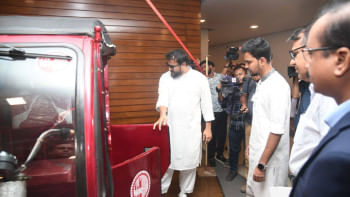WHO recommends new tools to protect infants from RSV

The World Health Organisation (WHO) has published its first position paper on immunisation products to protect infants from respiratory syncytial virus (RSV), the leading cause of acute lower respiratory infections in children worldwide.
RSV causes an estimated 100,000 deaths and over 3.6 million hospitalisations annually in children under five, with half of these deaths occurring in infants under six months. Most fatalities (97%) occur in low- and middle-income countries where access to medical care is limited.
The position paper, released in the Weekly Epidemiological Record, outlines WHO's recommendations for two immunisation products: a maternal vaccine (RSVpreF) and a long-acting monoclonal antibody (nirsevimab). Both were endorsed by the Strategic Advisory Group of Experts on Immunisation (SAGE) in September 2024. The maternal vaccine received WHO prequalification in March 2025.
The maternal vaccine is recommended for pregnant women from 28 weeks of gestation onwards, ideally during routine antenatal visits, to transfer protective antibodies to the baby. Nirsevimab, a single-dose monoclonal antibody, is administered to infants at birth or before hospital discharge. In countries with RSV seasonality, it may be given to older infants before their first RSV season.
According to WHO, these products have the potential to significantly reduce RSV-related hospitalisations and deaths. Countries are advised to choose the product that best fits their healthcare systems, considering feasibility, cost-effectiveness, and expected coverage.
The position paper is intended to guide national immunisation strategies and inform funding decisions.
Source: The World Health Organisation

 For all latest news, follow The Daily Star's Google News channel.
For all latest news, follow The Daily Star's Google News channel. 



Comments